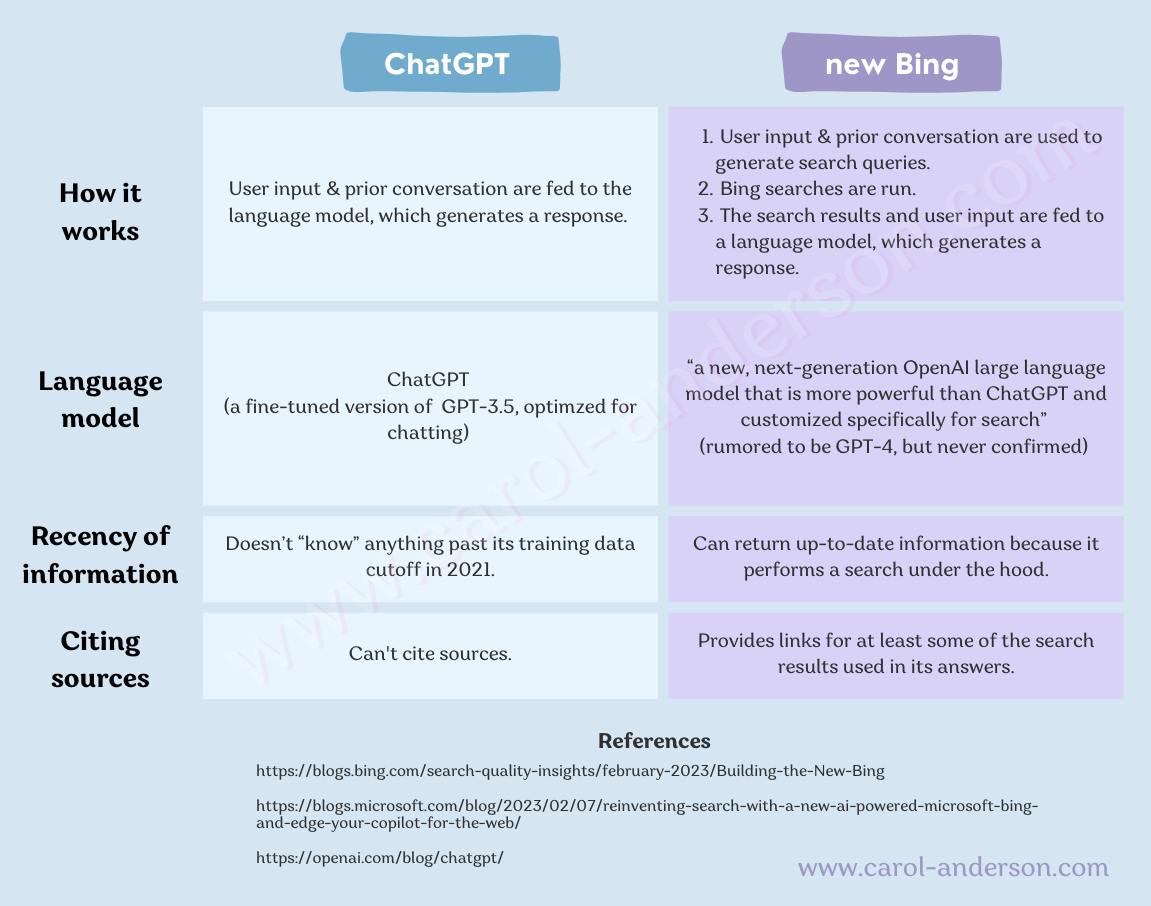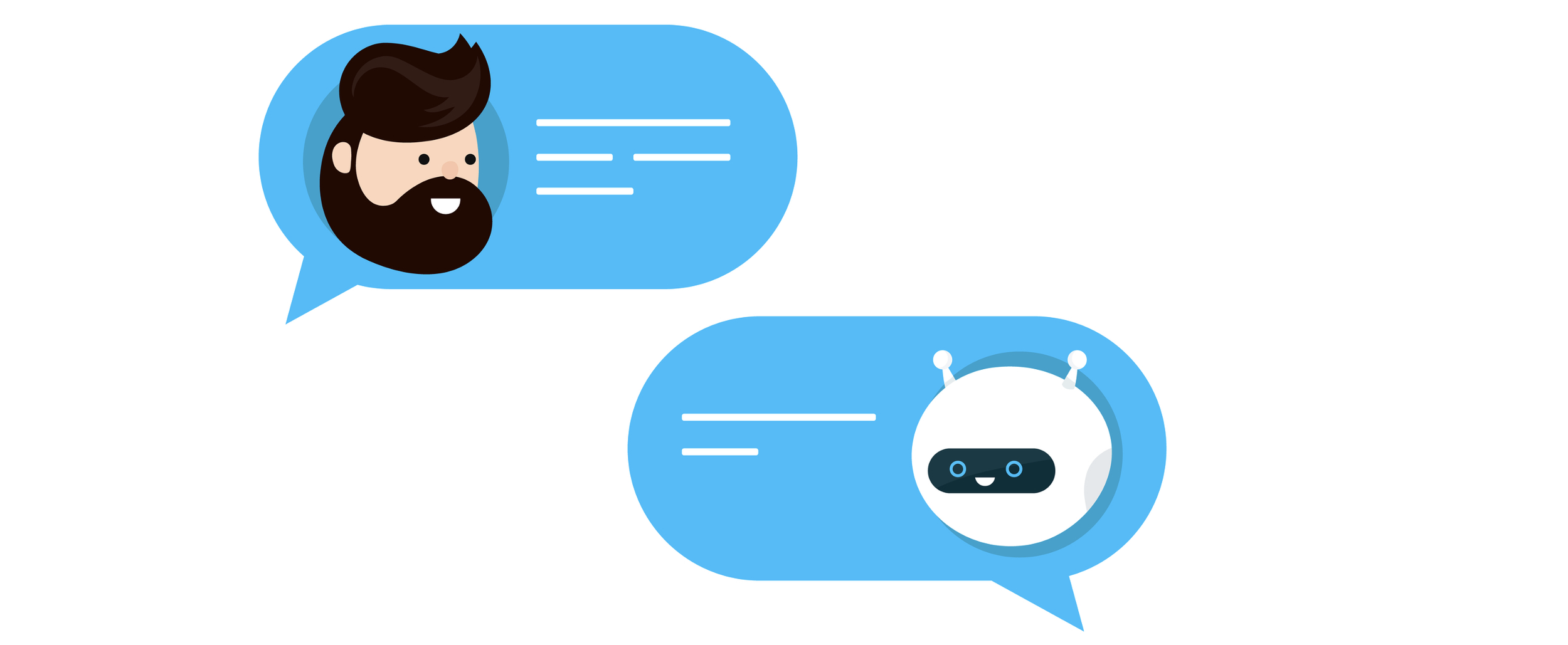Guardrails on large language models, part 4: content moderation
The final post in a four-part series on the guardrails on large language models.
Guardrails on large language models, part 3: prompt design
The third in a four-part series of posts about the guardrails on large language models.

What’s the difference between the new Bing and ChatGPT?
Wondering how the new AI-powered Bing is different from ChatGPT?
I made this graphic to show their key differences.

Koko, ChatGPT, and the outrage over corporate experimentation
Mental health service Koko sparked outrage by announcing it experimented with ChatGPT for mental health support, apparently without informing users. (It turned out users were informed all along, and the CEO’s Twitter thread was just really confusing.)
Here, I dig into the outrage and argue that much of it was focused on the wrong issue: the ethics of corporate experiments.
Why I don’t think ChatGPT is going to replace search anytime soon
There’s been a lot of breathless coverage of ChatGPT in the past week. One comment I keep seeing on social media is that it’s going to replace Google and other search engines. I don’t think that’s going to happen anytime soon, and here’s why.
Class-action lawsuit filed over copyright and privacy issues stemming from GitHub Copilot
Last week I posted about the copyright and privacy risks associated with large language models. One of the examples I discussed was GitHub Copilot, the code-writing assistant based on OpenAI's Codex model. One of the key problems with Copilot relates to code licensing. Today, the issue headed to court.

Large language models are vulnerable to “prompt injection” attacks
Large language models are vulnerable to a newly discovered kind of adversarial attack, known as “prompt injection, ” in which users trick the model into disregarding its designer’s instructions.